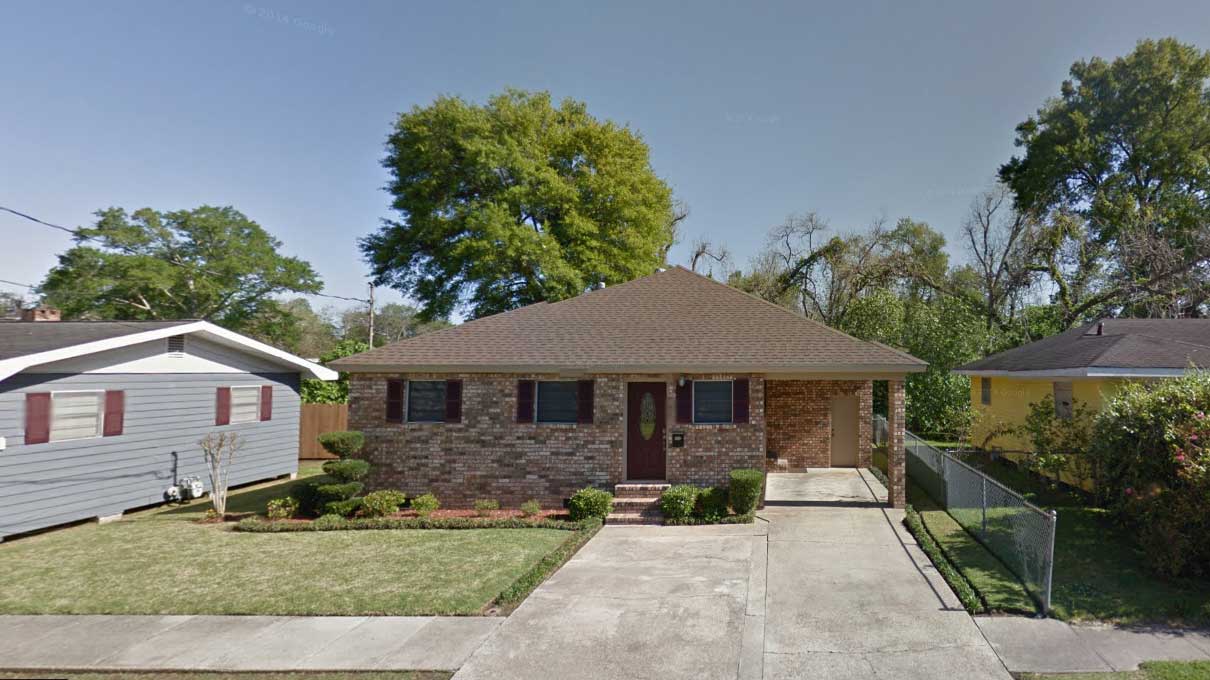
Selling an Unwanted Inherited Property in louisiana
Inheriting a property can present emotional challenges as well as financial ones. Does the property require costly upgrades and alot of repairs? What are the tax implications? Was there a will in place, or do you need to navigate the probate process? Despite the complexities, inherited properties offer a prime opportunity for real estate investors and buyers seeking discounted properties with potential we buy these houses quickly for cash. So, what does it entail to sell an inherited property as a homeowner? Are there specific measures to address in this unique situation? This guide will outline the steps involved in selling an inherited property in louisiana, Louisiana to maximize potential profits.
How To Sell An Inherited Property in louisiana
So you’ve inherited a property and you’re not sure what happens next. In most states, the inherited property must go through a probate process so the courts can determine who is the legal owner. Probate is a legal process in which the Court legally transfers ownership of the estate’s assets to one or more beneficiaries and/or Heirs. Depending on the state of the will (if there was one), this process can be very fast or very slow, either way it is never a simple process for the homeowner to be.
- Determine the Executor
For inherited properties with a will, establishing the executor of the estate should be straightforward. One of the most important aspects of a will is establishing an executor that is able to carry out the deceased’s wishes through the process of probate. Any assets listed in a will can not be sold until the will is validated by the Court but, once approved, the executor of the will is allowed to act on the wishes of the deceased. But if the will is contested or there is no will, the process might take longer as the Court gets involved. The more people that are involved when no will was left the longer the proces.
The probate court will appoint someone not associated with the family as an administrator to the estate. These administrators play a similar role as an executor; they are responsible for carrying out the wishes of the deceased as stated in the will, as well as paying off any of the estate’s debts and distributing any assets. They may also determine if any real estate assets will need to be sold to pay off the estate’s debts, including back taxes, mortgages, etc.
- Working with Lawyers and Real Estate Agents
Probate is not a simple process which is why you will need an experienced lawyer to help you navigate the potential pitfalls of selling an inherited home. But once you have the probate court’s okay to move forward with the sale of the property, working with a cash home buyer that has dealt with inherited homes before will be your next smart step. An experienced cash home buyer with probate experience will understand the nuances and regulations for this type of sale. They can help you get top dollar for the inherited property as is so you do not have to worry about doing any of the repairs or cleaning and staging for possible buyers.
- Resolve Any Debts
When you hear the word “inheritance” do you think of a mysterious great-aunt leaving you a million-dollar mansion in the woods, or do you understand the reality of having to deal with a property that might have liens against the title, years of back taxes, as well as a mortgage that leaves you with the ability to make much of a profit after a sale? Sadly, dealing with a loved one’s passing often means dealing with their debt, whether that’s in the form of taxes, a mortgage, or maxed out credit cards. Any assets you inherit must go to paying off that debt first before you can see one dime of the estate. While a house may seem like a huge asset, it also can be a huge money pit. An experienced estate advisor can help you research your options when it comes to dealing with an estate.
- Clean & Restore the Home
Once ownership has been decided and the property is considered yours, your next step will be to decide whether you want to live in it, rent it out, or sell it. Many times, when a loved one passes they leave behind a house that is not in the best of shape. Whether the property hasn’t been kept up in the past decade and needs major cleaning and repair, or there were never any upgrades done and the house will need to be completely renovated to make it “market ready”, this is the part of an inheritance that is often forgotten about, That is where selling to a cash buyer is a great option. We buy properties in AS-IS condition, so no repair are needed you dont even have to clean the property out, we will do everything.
Do all heirs have to agree to sell the property?
No, in louisiana, Louisiana, heirs don’t have to agree to sell an inherited house or property if ownership has been established by a will or the probate court. However, if ownership has not been established, such as with an estate without a will and/or a Court-appointed administrator, then all heirs must agree to the sale. This also includes properties that have been put up at auction by the Court to pay off the estate’s debts. If a buyer purchases a house at auction but one or more of the heirs disagree with the sale, the purchase must be put on hold while the disagreement is worked out and a settlement is reached.
When settling disagreements among Heirs over an estate in louisiana, one crucial step is to ensure the appointment of an executor. An executor serves as the point person responsible for implementing the deceased’s wishes outlined in the will, thereby minimizing potential conflicts regarding asset distribution. In cases where no executor is designated, leading to will disputes, the next course of action may involve engaging a mediator. Opting for a neutral third party to facilitate discussions can prove more cost-effective than resorting to a legal battle in probate court.
However, challenges may arise if disputes revolve around the appointed executor. Conflict often surfaces when a family member assumes the role of executor or trustee, leading to discord within the family. If such a scenario unfolds, one potential solution is for the individual to decline the appointment and select an independent fiduciary, like an estate-planning attorney, to manage the will. By stepping aside and allowing a neutral party to take charge, not only can conflicts be averted, but it also grants everyone the necessary time and space to address emotional complexities before they jeopardize familial relationships.
How is inherited property taxed when sold?
State and local governments in the United States collected over $5.3 billion in revenue from estate and inheritance taxes in 2020. That’s a lot of taxes! But with laws and regulations different from state-to-state, you’ll want to do your research and contact a lawyer with knowledge and experience of taxes and estate planning as you deal with a surprise inheritance or you’re writing your own will.
State Tax Laws
Each state has different laws regarding inheritances. In the case of the sale of an inherited property, states may take an estate tax, an inheritance tax, as well as a capital gains tax on your inheritance. Currently, twelve states have an estate tax, 5 have an inheritance tax, and one has both an estate and inheritance tax.
- Capital Gains Tax on Inherited Property
What is the capital gains tax and which states require it? The capital gains tax is paid on the appreciation of any assets that an heir inherits through an estate but it is only levied once the asset is sold for a profit, not when you inherit. This tax is then paid on the difference between the sale price and the purchase price of the property. Most states require this tax paid on an inherited property, but there may be exemptions for individuals selling a property for less than a certain amount. An example is Washington State, where the capital gains tax is not levied on homes and/or properties sold for less than $250,000. There may also be other legal ways to get around or reduce the capital gains tax in your state, including reinvesting the money in another property. Consult with a tax lawyer knowledgeable of the laws in the area you will be selling before proceeding with the sale of your property.
- Estate Taxes
An estate tax is a tax paid directly out of the estate to the state before anyone is able to inherit it. Worried that you might get a huge hit taken from the estate? Don’t worry! The estate tax has a minimum threshold which in 2023 was $12.92 million for individuals. This means that the government is not able to charge you an estate tax unless your total taxable estate is worth $12,920,001. The remainder is passed on estate tax-free. Despite having such a high threshold, each year more states repeal their estate tax laws, losing out on millions of dollars of revenue.
- Inheritance Taxes
Only six states have an inheritance tax, meaning that it is likely that you are in the lucky majority that won’t have to deal with this. But if you live in one of those six states – Maryland, Nebraska, Kentucky, New Jersey, Pennsylvania, and Iowa – you as a beneficiary/Heir to an estate will be required to pay taxes on your inherited assets and properties. But don’t worry – even if you live in a state that has an inheritance tax, you won’t have to pay a dime if the deceased lived in one of the 44 states that does not have this tax.
Documents required to sell an inherited property
To show legal ownership and place a property for sale, you will need to have a copy of the documents issued by the court that grant you the legal authority to act as the executor or administrator of the estate. These documents will establish your ability to manage the inherited property. Once a buyer is found and you are ready to close, you’ll need the deed, title insurance, or other relevant legal records to establish the legal ownership of the inherited property.
Do your research regarding what additional documents may be needed to sell an inherited property! Some jurisdictions may require additional property-related documents, including previous surveys, inspections, or any other relevant paperwork that pertains to the property’s condition or history.
Is there an easier way to sell?
Yes, there is! Lafayette Cash Home Buyers is a direct house buying company that has built our reputation on buying inherited houses for cash with less stress and less fees. Contact us today and get a competitive cash offer for an inherited house, condo, or property. We buy homes in any condition, and we can also help with the convoluted process of selling a house in probate! Let us make your home selling experience as straightforward and stress-free as possible so you can move on with your life.
If you own a property that’s stuck in probate that you are ready to sell, call us at (337) 366-0230 day or night to get a competitive cash offer for that inherited home. We buy properties in any condition and no matter what the estate’s financial situation might be. Even if the house suffered major damage in the last storm or was neglected for years and needs a large amount of upgrades to make it “market ready”, once you accept our fair cash offer our team of experts will handle all of those expensive repairs so you don’t have to! We make selling an inherited house easy.

